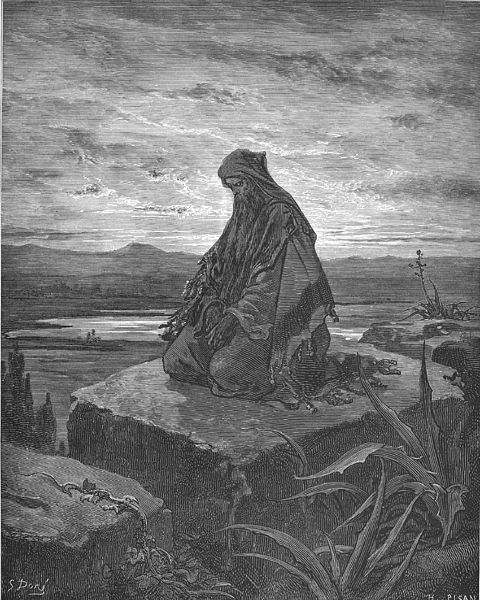
Gustave Doré (1866)
(Wikimedia Commons)
Today’s reading, 2 Nephi 13 (= Isaiah 3), is, in many ways, a horrifying one.
By means of various symbols, Isaiah is trying to express the total upending of “normalcy” in Jerusalem and Judah that will come as a result of divine judgment upon their unrighteousness and unfaithfulness.
Generals, judges, wise counselors, “prophets” — the traditional leaders of Hebrew society under the monarchy — will be displaced by children (whether literally or figuratively speaking).
it will be a time of lawlessness and mutual oppression. The war of all against all.
In a society where age was normally respected, young people will treat their elders insolently. Low-lifes, the dregs of society, will show no respect to their “betters.” In a patriarchal society, women will rule over men.
Desperate for leadership, people will rally around those who’ve simply managed to retain some decent clothing, begging them to take charge of things. But nobody will want to accept the responsibility.
In other words, society will be turned on its head. Old pieties, things that could be relied upon, traditional standards and roles, will be gone. But, if they’re replaced at all, they’ll be replaced in what would have seemed to an ancient Israelite a distorted, hellish, unnerving, unnatural, carnival-funhouse sort of way.
Isaiah subjects the worldly, materialistic, fashion-obsessed women of his society to particularly withering criticism in verses 16-24.
But, lest a feminist complain that he’s singling women out for scapegoating blame and punishment, here’s his terse, one-verse prediction regarding his own gender:
“Thy men shall fall by the sword and thy mighty in the war.” (See verse 25.)
Posted from Fresno, California











